Abstract
With tension between the demand for health services and the cost of providing them, rationing is increasingly evident in all medical systems. Until recently, rationing was primarily through the ability to pay or achieved implicitly by doctors working within fixed budgets. Such forms of rationing are commonly alleged to be inequitable and inefficient and explicit rationing is advocated as more appropriate. Utilisation management in the United States and quasi-markets separating purchasing from provision in the United Kingdom are seen as ways of using resources more efficiently and are increasingly explicit. There is also advocacy to ration explicitly at the point of service. Mechanic reviews the implications of these developments and explains why explicit approaches are likely to focus conflict and dissatisfaction and be politically unstable. Explicit rationing is unlikely to be as equitable as its proponents argue and is likely to make dissatisfaction and perceived deprivation more salient. Despite its limitations, implicit rationing at the point of service is more sensitive to the complexity of medical decisions and the needs and personal and cultural preferences of patients. All systems use a mix of rationing devices, but the clinical allocation of services should substantially depend on the discretion of professionals informed by practice guidelines, outcomes research, and other informational aids.
Full text
PDF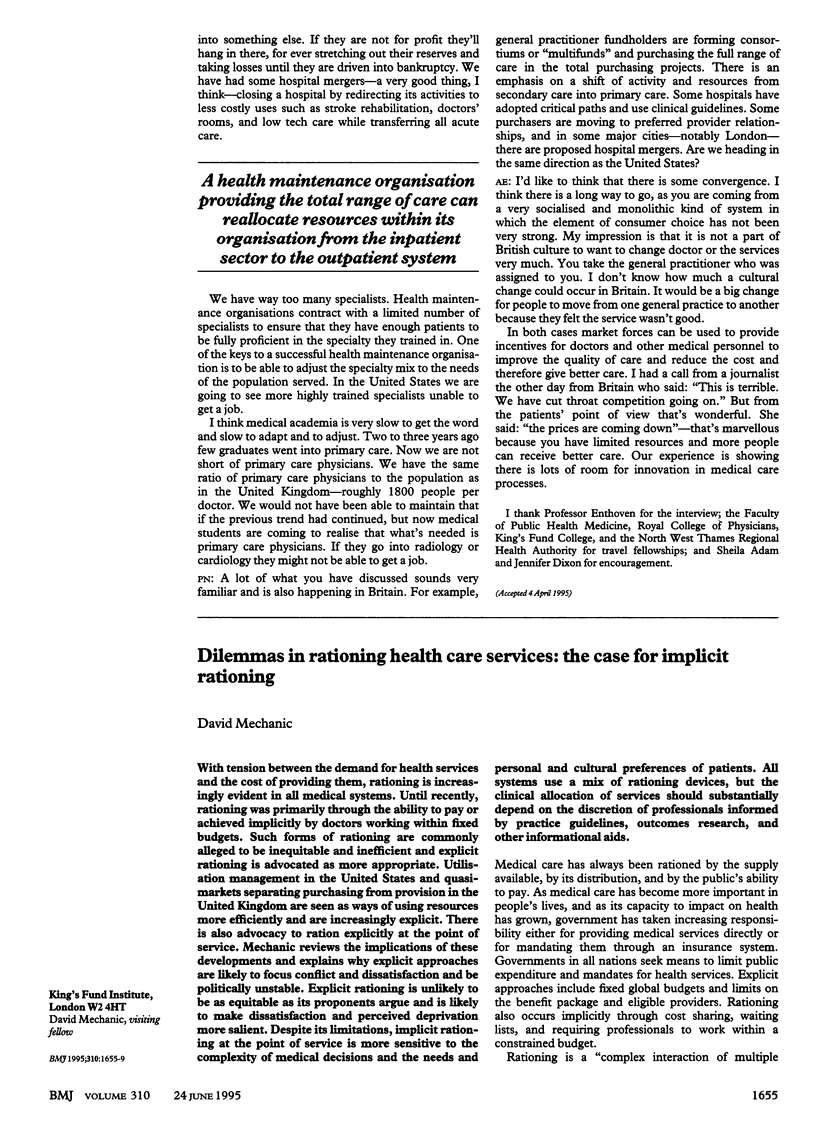
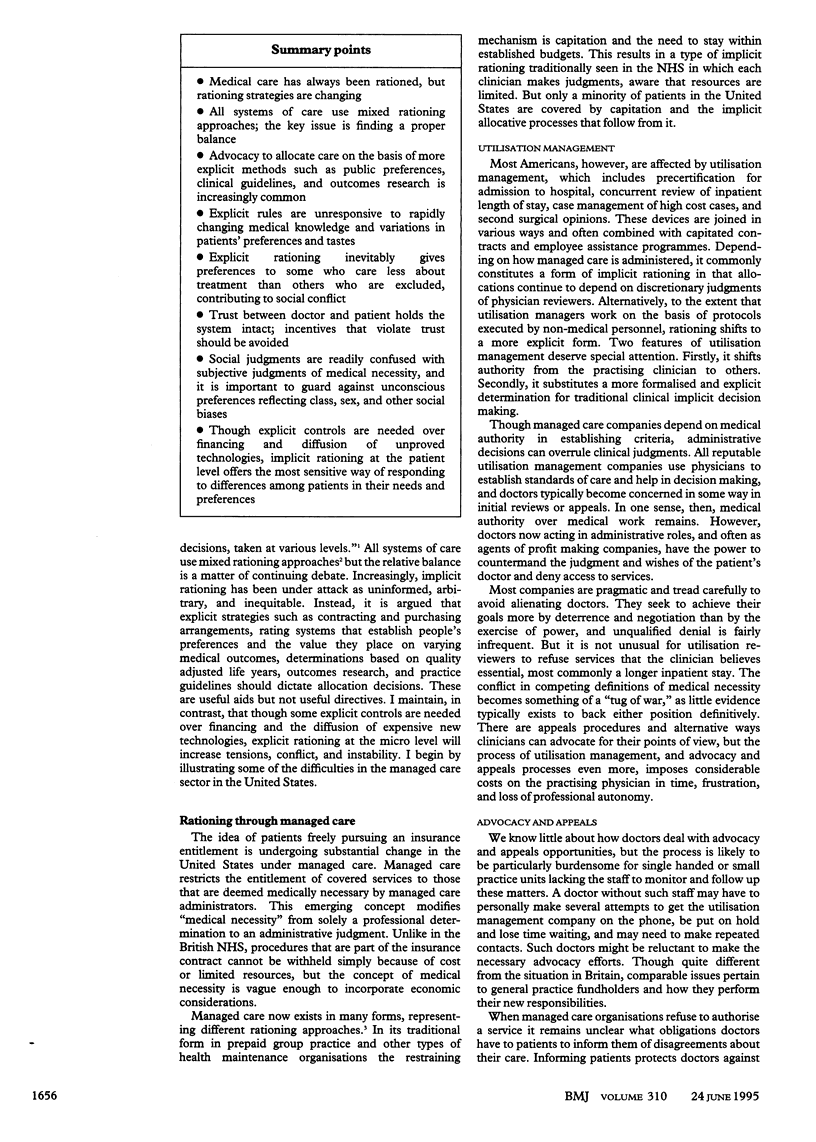
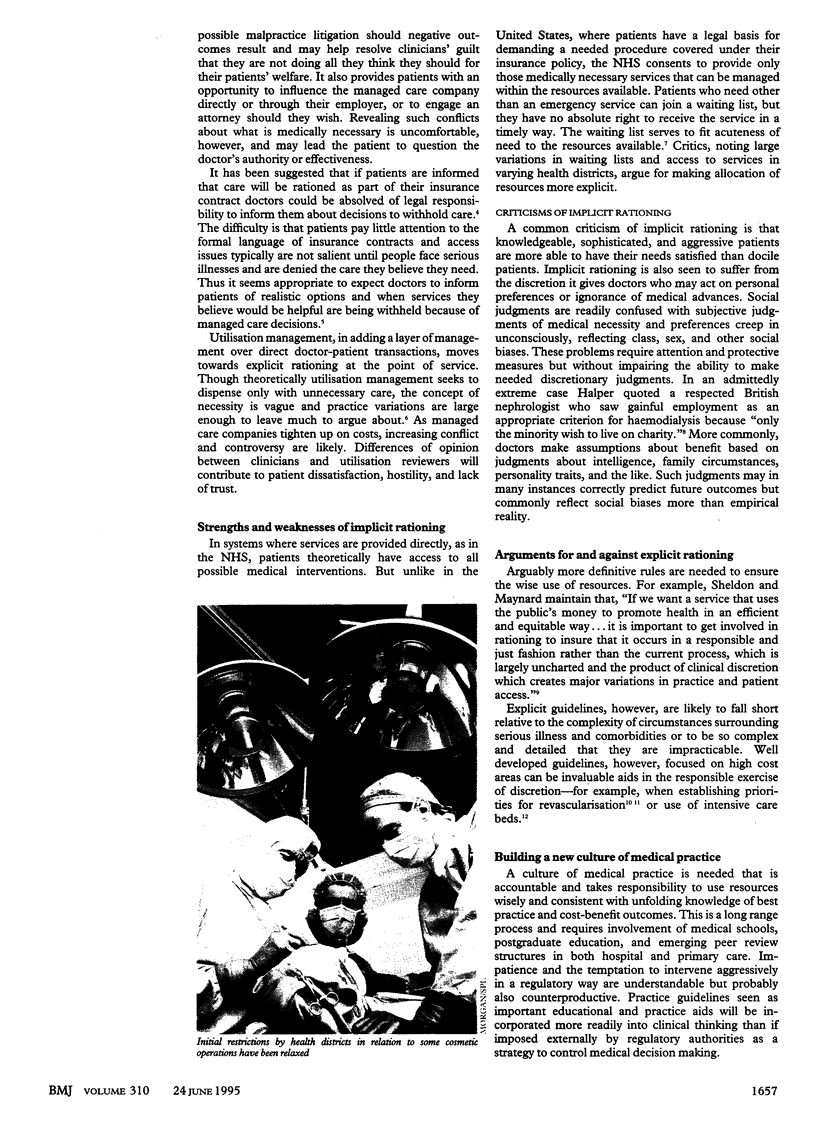
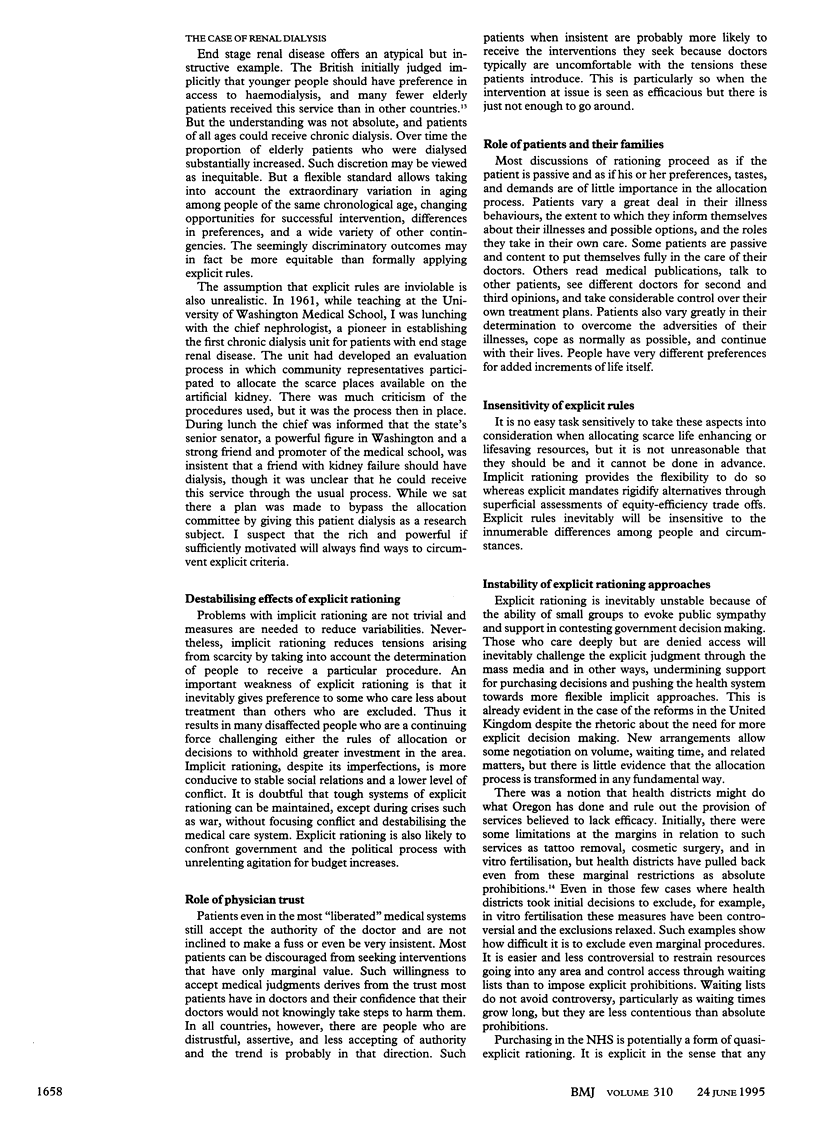
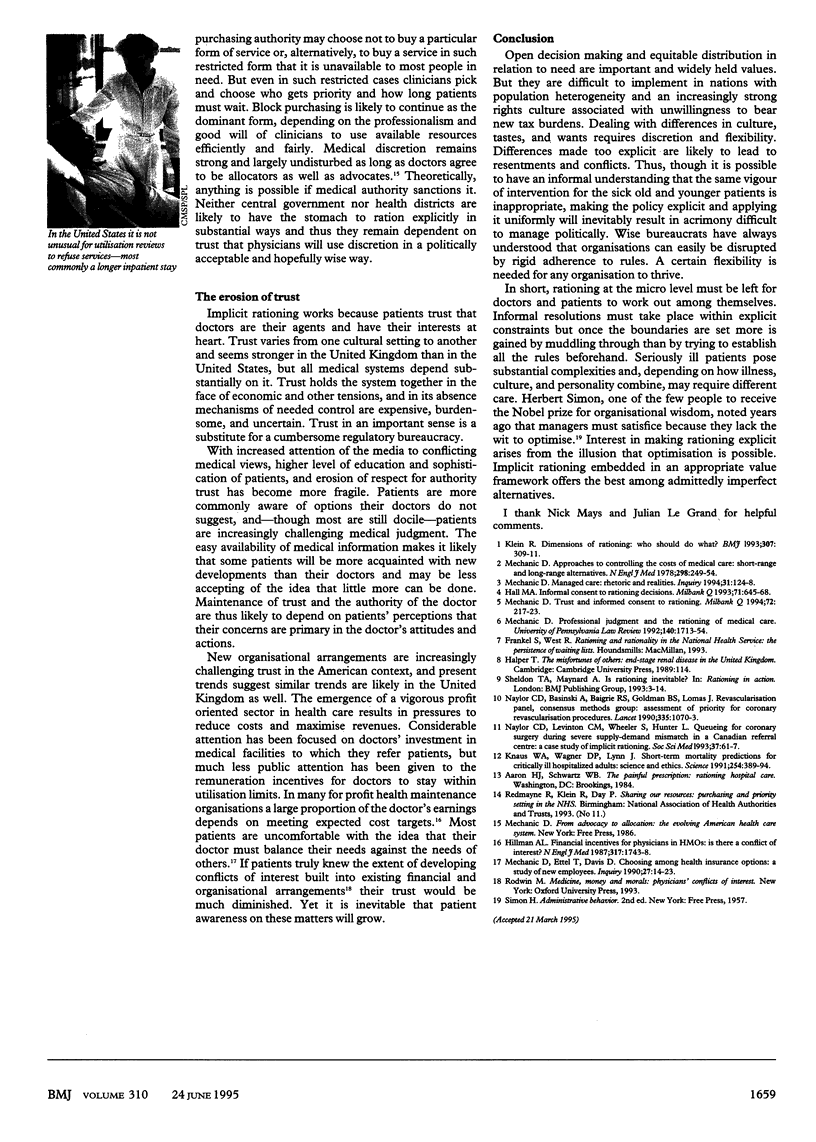
Images in this article
Selected References
These references are in PubMed. This may not be the complete list of references from this article.
- Hall M. A. Informed consent to rationing decisions. Milbank Q. 1993;71(4):645–676. [PubMed] [Google Scholar]
- Hillman A. L. Financial incentives for physicians in HMOs. Is there a conflict of interest? N Engl J Med. 1987 Dec 31;317(27):1743–1748. doi: 10.1056/NEJM198712313172725. [DOI] [PubMed] [Google Scholar]
- Klein R. Dimensions of rationing: who should do what? BMJ. 1993 Jul 31;307(6899):309–311. doi: 10.1136/bmj.307.6899.309. [DOI] [PMC free article] [PubMed] [Google Scholar]
- Knaus W. A., Wagner D. P., Lynn J. Short-term mortality predictions for critically ill hospitalized adults: science and ethics. Science. 1991 Oct 18;254(5030):389–394. doi: 10.1126/science.1925596. [DOI] [PubMed] [Google Scholar]
- Mechanic D. Approaches to controlling the costs of medical care: short-range and long-range alternatives. N Engl J Med. 1978 Feb 2;298(5):249–254. doi: 10.1056/NEJM197802022980505. [DOI] [PubMed] [Google Scholar]
- Mechanic D., Ettel T., Davis D. Choosing among health insurance options: a study of new employees. Inquiry. 1990 Spring;27(1):14–23. [PubMed] [Google Scholar]
- Mechanic D. Managed care: rhetoric and realities. Inquiry. 1994 Summer;31(2):124–128. [PubMed] [Google Scholar]
- Mechanic D. Trust and informed consent to rationing. Milbank Q. 1994;72(2):217–223. [PubMed] [Google Scholar]
- Mechanic David. Professional judgment and the rationing of medical care. Univ PA Law Rev. 1992 May;140(5):1713–1754. [PubMed] [Google Scholar]
- Naylor C. D., Baigrie R. S., Goldman B. S., Basinski A. Assessment of priority for coronary revascularisation procedures. Revascularisation Panel and Consensus Methods Group. Lancet. 1990 May 5;335(8697):1070–1073. doi: 10.1016/0140-6736(90)92640-4. [DOI] [PubMed] [Google Scholar]




